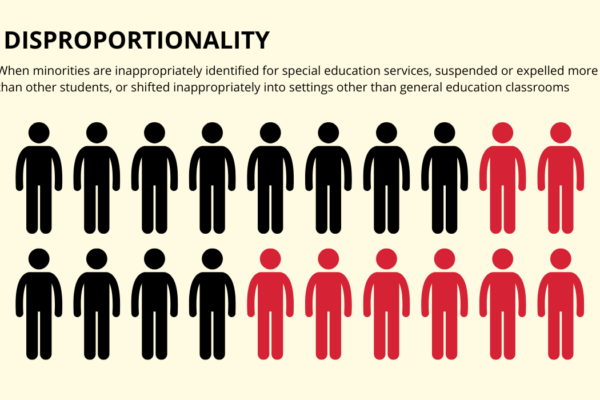From time to time, parents provide feedback to MOE about their children’s learning of primary school Mathematics. In this Schoolbag Q&A, our expert panel of MOE Mathematics educators take on some frequently asked questions, including how Maths learning has changed, why the Model Method was introduced, and whether students should skip over topics they struggle with.
Teaching, learning and assessment of Mathematics
Q1: The way my child learns Mathematics is so different from when I was in primary school. Is there a need for such change?
Dr Ridzuan: You are right to observe that your child’s learning of Mathematics in school is not the same as compared to when most of us were in school.
In the past, when computers were not prevalent and there was no Internet, the emphasis of education was on allowing students to acquire as much knowledge as possible. For Mathematics, there used to be greater focus on memorising mathematical facts and to be computationally fluent, for example, with the four operations of addition, subtraction, multiplication and division.
The emphasis has now shifted to learning how to access, evaluate and use knowledge as well as to make connections to real life. Our students must learn to be fluent with the four operations within the context of solving real-world problems, because just knowing some information or knowing how to do some calculations or follow a set of procedures will no longer get our students through the more complex and interconnected world they are going to live in.
To be adequately prepared to find solutions in real life, they must learn to understand a problem and explore ways to solve the problem. We encourage them to view setbacks constructively as a natural part of learning, and adopt a fail-try-fail spirit in problem-solving. At primary level, the contexts of problems posed are appropriately simplified and students are taught various ways to approach the various types of problems.
Our Mathematics curriculum is carefully organised to enable students to develop the necessary understandings and skills in a systematic and age-appropriate way. We ensure that the learning outcomes are responsive to their future needs. This includes ensuring that the curriculum develops higher-order skills, like the application of concepts and skills to new contexts. Furthermore, these higher-order skills are widely accepted by educators across the world as important skills.
So while the topics have not changed very much, how our students learn today has definitely changed and will continue to change so that they are better prepared for the future.
Q2: I understand that our syllabus needs to evolve with the times, but the questions I see in my child’s examination papers have grown too complex and challenging.

Ms Chan: I understand how some parents may feel that the problems are getting more difficult because they had never been taught during their school days to approach problem-solving this way. What they may not see on a day-to-day basis is that their children are taught differently today and are being supported by their teachers to progressively work through these problems in a systematic way.
Look into Mathematics classrooms today and you will see students exploring maths knowledge using manipulatives and technology either individually or in a group. For example, with the fractions disc, students can see that 3/6 is equivalent to 6/12 when they overlay the parts and see that the parts are equal. As they explore with more fractions, they are gradually guided to see the pattern that to find the equivalent fractions of a fraction, one will have to multiply the numerator and denominator of the fraction with the same number.
Students are not only guided to see the patterns in Mathematics, but to also develop a deeper understanding and curiosity for the subject. This way, they can sharpen their critical thinking and problem-solving skills, which will in turn help them to develop different approaches in tackling a few of the more novel and challenging questions .
To further support student learning, our teachers learn new ways to help their students to sharpen their critical thinking and problem-solving skills. To motivate our students, there is also a healthy dose of fun and play injected into group activities.
Dr Ridzuan: Examinations serve important functions in supporting the students’ learning. In schools, they assess the readiness of students for learning at the next level, and surface learning gaps so that teachers are able to close them with the students. For instance, at the end of Primary 4 and Primary 5, information on their competencies allows schools to offer intervention or courses for students to learn at the level that best suits their learning needs.
As a result, in every examination, there will be an appropriate balance of easy, moderate and challenging questions in order to determine the levels of mastery of the subject for students of different abilities. In Mathematics examinations, we assess our students’ competency in a range of skills, such as computational skills, mathematical concepts, and processes and problem-solving skills and we are not expecting all our students to be able to solve all questions, or to be equally proficient across all the range of skills. However, students should be able to confidently solve the questions that assess baseline learning outcomes, if a strong foundation has been laid.
Q3: Our Mathematics exams are too difficult for our students. There is also a lot of emphasis on word problems. Shouldn’t Maths focus mainly on the computation of numbers and application of formula rather than language ability?
Dr Ridzuan: On the point of word problems, even at the primary school level, some understanding of mathematical terms is essential for the learning of mathematical contexts or situations. We also know that in life, we are typically not presented with mathematical problems expressed in symbols or equations to solve. These problems often come in descriptions that require us to distil the mathematical issue underlying them. Having said that, we agree that language should not be a hindrance in the learning of maths, and word problems should be phrased simply and in short sentences, to fall within the general language ability of the student cohort.
Q4: Are school examinations marked more strictly than at the PSLE? It seems to be the case although some teachers say they are marked the same way.
Dr Ridzuan: We adopt similar marking principles for school-based assessments as well as for national examinations. Marks are awarded to key steps that support the test objective(s) of each examination question.
The purpose of school-based assessments is to enable teachers to help their students learn and continually close their learning gaps. Hence, in some situations, some schools may appear to adopt a stricter approach in their marking for school assessment because they are looking for specific presentations or approaches in the students’ responses to reinforce practices that have been taught in class. We have been working with schools to review their assessment practices so that there is better alignment with the marking principles practised at the national examinations. It is important for parents to maintain open communication with the schools, and seek clarification where necessary to best support their child’s learning.
At the national examinations, students are awarded marks so long as their methods are mathematically sound and their workings are presented in a clear and systematic manner that demonstrate correct understanding.










Comments on " Does Maths have to be so difficult?" :